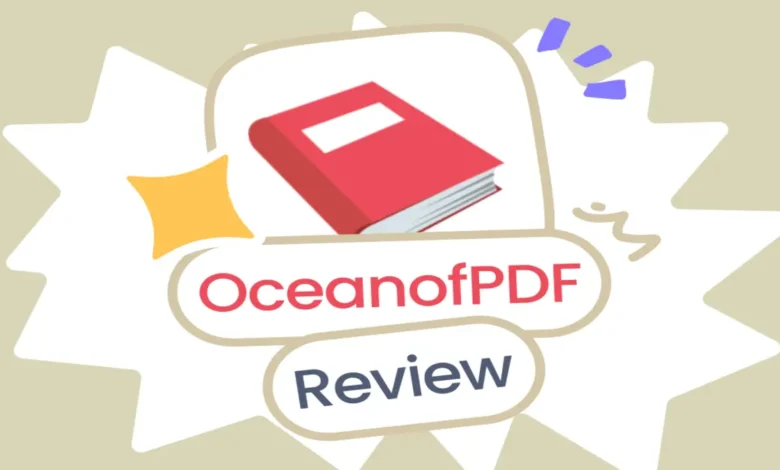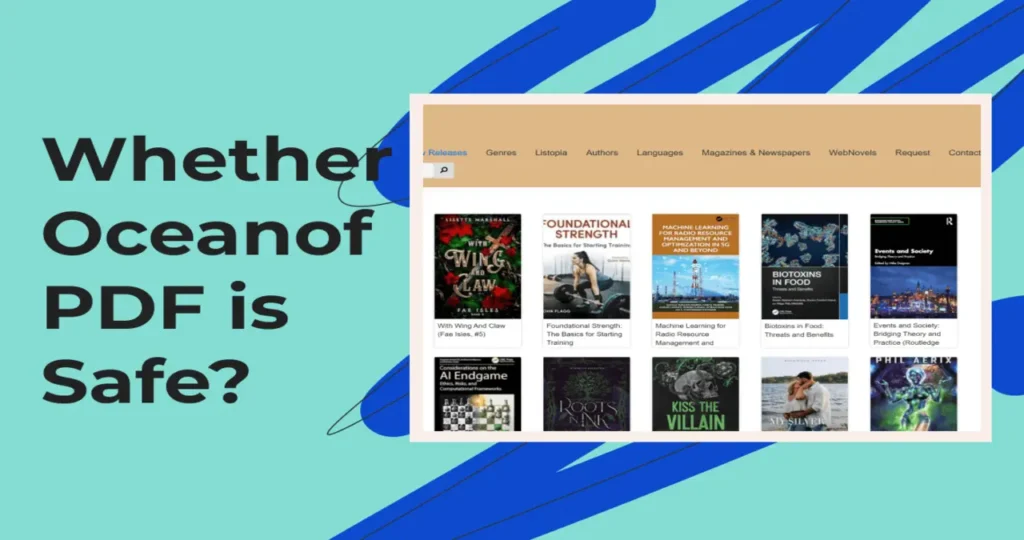Ocean of PDF: Where Every Document Tells a Story

Introduction
In today’s digital age, Ocean of PDF have become an indispensable part of our lives. From academic research and business reports to e-books and legal documents, PDFs store a vast ocean of knowledge. “Ocean of PDF: Where Every Document Tells a Story” perfectly captures the essence of this limitless digital library.
But what makes PDFs so special? Why do millions of users rely on platforms offering an “Ocean of PDF” for their daily needs? In this comprehensive guide, we’ll explore:
- The evolution and importance of PDFs
- Why “Ocean of PDF” is a game-changer for readers and researchers
- How to navigate and utilize PDF resources effectively
- The best tools to manage and optimize your PDF experience
- The future of digital documents
By the end of this article, you’ll understand why every PDF holds a unique story and how you can make the most of this incredible resource.
The Evolution of PDFs: From Static Files to Dynamic Knowledge Repositories

A Brief History of PDFs
The Portable Document Format Ocean of PDF was introduced by Adobe in 1993 to create a universal file format that preserves formatting across devices. Over the years, PDFs have evolved from simple text documents to interactive files with:
- Hyperlinks
- Embedded multimedia
- Fillable forms
- Digital signatures
Why PDFs Dominate Digital Documentation
- Universal Compatibility – PDFs can be opened on any device without losing formatting.
- Security Features – Password protection and encryption keep sensitive documents safe.
- Searchable Content – Unlike scanned images, text in PDFs can be indexed and searched.
- Eco-Friendly – Reduces paper usage, making it an environmentally friendly option.
Ocean of PDF: A Digital Library Without Limits
What Makes “Ocean of PDF” Special?
Imagine a vast digital library where every document—whether an e-book, research paper, or legal contract—has a story to tell. “Ocean of PDF” represents this endless repository of knowledge, offering:
- Free & Premium Resources – From classic literature to cutting-edge research.
- User-Friendly Navigation – Advanced search filters to find exactly what you need.
- Diverse Categories – Academic, business, fiction, self-help, and more.
Who Benefits from an Ocean of PDFs?
- Students & Researchers – Access textbooks, journals, and thesis papers.
- Professionals – Download business templates, legal forms, and industry reports.
- Book Lovers – Explore rare and out-of-print books.
- Writers & Publishers – Share and distribute digital copies effortlessly.
How to Navigate the Ocean of PDF Like a Pro
Finding the Right PDFs
- Use Specific Keywords – Instead of “history books,” try “World War II history PDF.”
- Explore Niche Platforms – Websites like Google Scholar, Z-Library, and Sci-Hub specialize in academic PDFs.
- Check Authoritative Sources – Universities and government websites often provide free PDFs.
Organizing Your PDF Library
- Use Cloud Storage – Google Drive, Dropbox, or OneDrive for easy access.
- PDF Management Tools – Adobe Acrobat, Foxit Reader, or PDFelement for editing and organizing.
- Tagging & Folders – Categorize by subject, author, or priority.
Enhancing Your PDF Experience
- OCR (Optical Character Recognition) – Convert scanned PDFs into searchable text.
- Annotations & Highlights – Take notes directly on the document.
- Text-to-Speech – Listen to PDFs on the go.
The Future of PDFs: Trends & Innovations
AI-Powered PDF Tools
- Smart Summarization – AI extracts key points from lengthy documents.
- Automated Translations – Instantly convert PDFs into multiple languages.
- Voice Commands – Navigate documents hands-free.
Blockchain for PDF Security
- Tamper-Proof Documents – Blockchain ensures PDFs remain unaltered.
- Digital Notarization – Secure verification for legal and business use.
Interactive & Immersive PDFs
- Embedded 3D Models – Ideal for engineering and design.
- Virtual Reality (VR) Integration – Future PDFs may include VR walkthroughs.
Conclusion: Dive Into the Ocean of PDFs & Discover Hidden Stories
The “Ocean of PDF” is more than just a collection of files—it’s a gateway to endless knowledge. Whether you’re a student, professional, or casual reader, mastering PDF navigation and management can unlock new opportunities.
By leveraging the right tools and strategies, you can:
✔ Find rare and valuable documents
✔ Organize your digital library efficiently
✔ Stay ahead with future PDF innovations
So, are you ready to explore the Ocean of PDF? Start your journey today and uncover the stories waiting to be read!
1. What types of documents can I find in the “Ocean of PDF”?
You can discover a vast range of documents, including:
- Academic papers (research studies, thesis papers)
- E-books (fiction, non-fiction, classics)
- Business & legal templates (contracts, reports, resumes)
- Government & public domain archives
- Self-help & instructional guides
2. How can I access PDFs safely without copyright issues?
To avoid legal risks:
✔ Use open-access platforms (Google Scholar, Project Gutenberg).
✔ Check Creative Commons licenses before downloading.
✔ Avoid pirated content from unauthorized sources.
3. What are the best tools to organize and edit PDFs?
The top recommended tools include:
- Adobe Acrobat (advanced editing & security)
- Foxit Reader (lightweight & fast)
- PDFelement (budget-friendly alternative)
- Zotero (for researchers managing citations)
4. Can I convert a scanned PDF into editable text?
Yes! Use OCR (Optical Character Recognition) tools like:
- Adobe Acrobat’s OCR feature
- Online converters (ILovePDF, Smallpdf)
- Free software (Tesseract OCR for tech-savvy users)
5. What’s the future of PDF technology?
Emerging trends include:
- AI-powered summaries (ChatGPT for PDF analysis)
- Blockchain-secured documents (tamper-proof contracts)
- Interactive 3D/VR PDFs (for engineering & education)





